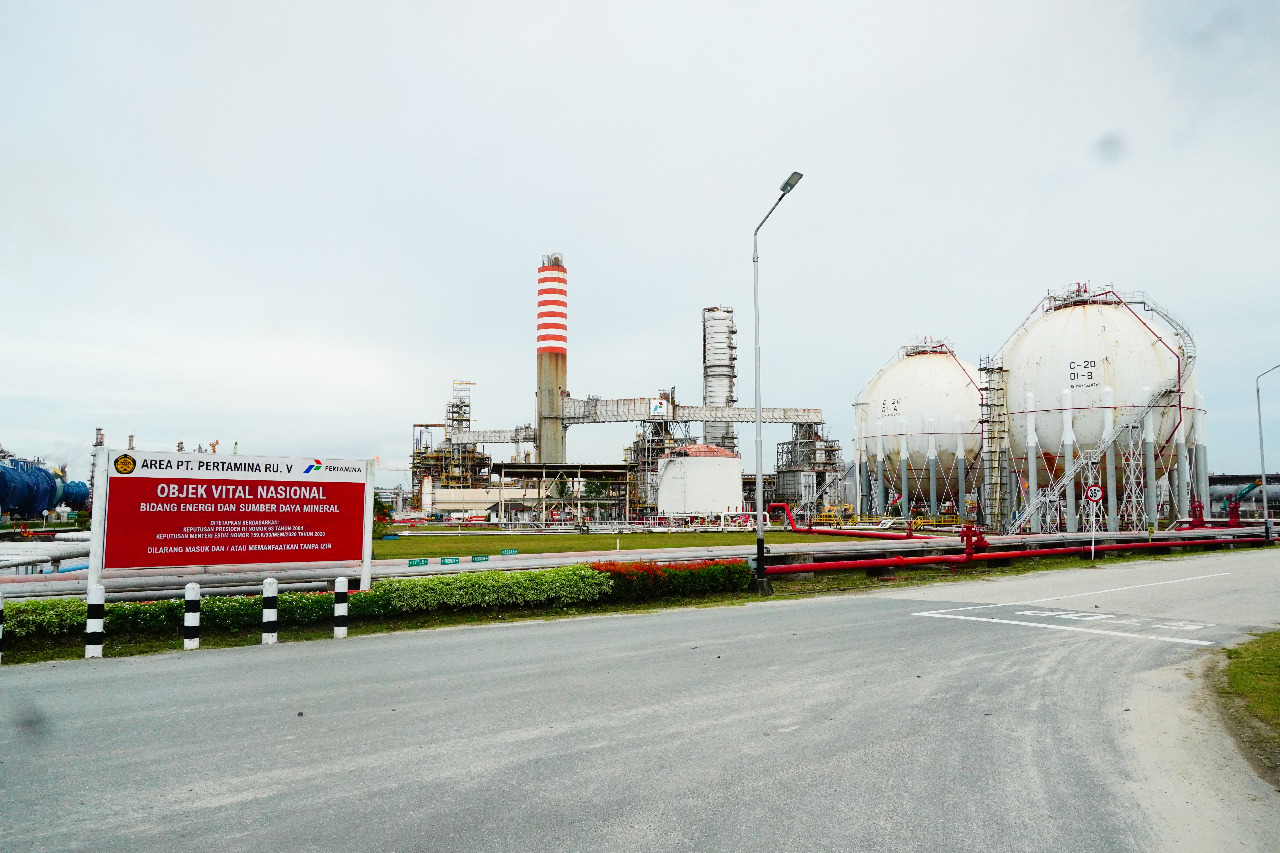
Pertamina's Balikpapan Refinery Development Supports Indonesia's Roadmap towards Euro V Implementation
Jakarta, November 12, 2021 – In line with the mission to run the oil refinery and petrochemical business in a professional and international standard manner with strong economic principles and environmental insight, PT Kilang Pertamina Internasional (PT KPI) continues to strive to increase the value and quality of its products to make them more suitable with the international standards and more environmentally friendly. Through the Balikpapan Refinery Development Master Plan (RDMP) refinery development project, Pertamina through PT KPI is determined to pave the way for the implementation of the Euro V standard in Indonesia. This effort is a support for the Government of Indonesia which has set a roadmap for the implementation of Euro V in 2027.
The Balikpapan RDMP project not only aims to increase the refinery capacity, but also realizes a green refinery that produces products with quality and high value, and is environmentally friendly, according to the Euro V standard. The standard product Euro V has a benefit namely a more efficient level of consumption.
Corporate Secretary of PT KPI, Ifki Sukarya, stated that the project that is located in the oil city of Balikpapan, East Kalimantan, is a National Strategic Project (PSN) which was entrusted to Pertamina to complete it. For Pertamina, this project is the largest project ever managed, especially in the refining & petrochemical (processing and petrochemical) sector.
Ifki explained that the Balikpapan Refinery RDMP project is scheduled to be completed in 2024 with a target to increase the production capacity of the RU V Balikpapan Refinery from 260 MBSD (thousand barrels per day) to 360 MBSD and produce quality products that meet Euro V standards. "RFCC Unit or Residual Fluid Catalytic Cracking is a refinery unit that utilizes cracking technology with a catalyst to convert heavy/residue oil into more valuable and high-quality products. This unit is targeted to start the production in the first semester of 2024. Meanwhile, the unit producing the High Octane Mogas Component, namely the gasoline component with a high octane number, will start its production at the end of the second semester of 2024," he said.
"The Pertamina Balikpapan refinery is currently the second largest refinery owned by Pertamina. About 25% of the national refinery capacity is fulfilled from there. So this refinery is indeed a strategic position, especially to meet energy needs in eastern Indonesia," said Ifki.
The development of the Balikpapan Refinery through the RDMP project, Ifki continued, will add to the lineup of high-quality products that have been produced so far, namely High-Speed Diesel 50 ppm (HSD 50 ppm), Net Bottom Fractionator (NBF), Smooth Fluid (SF) 05, Low Aromatic White Spirit (LAWS), and Marine Gasoil (MGO) Low Sulfur. In addition, the Balikpapan Refinery will produce a new product, namely propylene which is used as raw material for polypropylene factories.
According to Ifki, PT KPI's efforts to meet the Euro V standards through the Balikpapan RDMP also support Indonesia's commitment to tackle climate change. As it is known, at the COP 26 climate change summit in Glasgow, Scotland, a number of world leaders, including President Joko Widodo, have renewed their commitment to transition towards a low-emissions and climate-resilient future. To demonstrate this commitment, President Joko Widodo has even issued a Presidential Regulation (Perpres) on the Economic Value of Carbon (NEK) which makes Indonesia a pioneer (first mover) for market-based climate change mitigation at the global level towards sustainable economic recovery.
“Indonesia has been calculated as a potential superpower country in tackling climate change and has even become a first mover with the ratification of the Presidential Decree NEK. Our country is working to meet the second updated NDC (National Determined Contribution) target, namely reducing greenhouse gas (GHG) emissions by 29% by 2030 or 41% with international support. This is where PT KPI comes to support the achievement of these targets," concluded Ifki.**